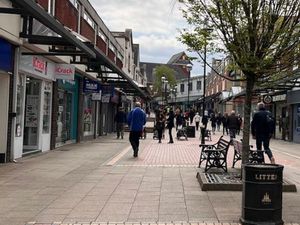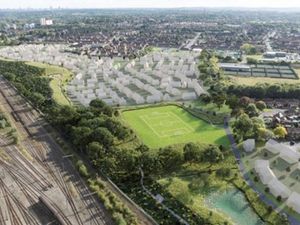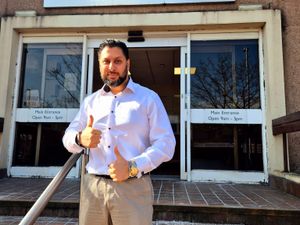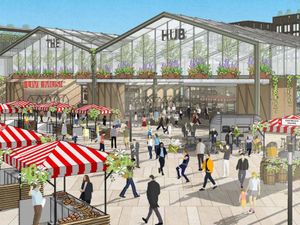Migration falls after Brexit vote – but 30,000 still arrive in West Midlands
Fewer foreigners have moved to the Black Country and Staffordshire from abroad since the Brexit vote – but the wider region's migrant population has still risen by more than 20,000.
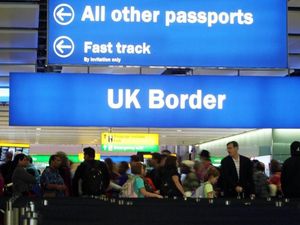
New figures from the Office for National Statistics (ONS) show that 7,308 more migrants came to the area than departed in the year to the end of June 2017.
However, the figure is 1,426 lower than the influx of 8,734 migrants to the region that was recorded in the 12 months leading up to the EU referendum in June 2016.
Express & Star comment: We are let down again on migration
According to the figures, last year 30,997 people moved to the West Midlands from abroad and 10,614 left. This leaves the latest net migration figure at 20,383 – a drop of 5,622 on the previous year.
And nationally the net migration figure is around 270,000 – well above the Government’s net migration target of 100,000 – although EU migration is at its lowest level since 2012.
Madeleine Sumption, director of the Migration Observatory at the University of Oxford, said: “The UK has clearly become a less attractive country for EU migrants since the referendum.
“The lower value of the pound means that workers coming here for higher wages are getting less than they were in the past, and economic conditions in many of the key EU countries of origin have improved a lot over the past few years.
“Uncertainty about the implications of Brexit may have played a role.”
In the Black Country Sandwell had the highest net migration figure in the 12 months to June 2017, at 2,214. In Wolverhampton the figure was 2,020, while Walsall and Dudley had net migration figures of 858 and 427 respectively.
A total of 2,986 people moved to Staffordshire from abroad and 1,197 left, leaving the latest net migration figure at 1,789 – down 200 on the 12 months to June 2016.
Nicola Rogers, of the ONS’ Centre for Migration, said: "Today's figures show that around 270,000 more people are coming to the UK than leaving, so net migration is continuing to add to the UK population.
"Net migration has been broadly stable since peak levels seen in 2015 and 2016.”
Non-EU net migration to the UK is now almost three times higher than from the EU, the ONS says.
Theresa May has pledged to reduce net migration to 'the tens of thousands', although last week International Trade Secretary Liam Fox suggested the target could be dropped.
Where EU nationals are living in the UK
The first applications from EU nationals wishing to stay in the UK post-Brexit will be submitted on Tuesday.
People working or studying at 12 NHS trusts in north-west England, and students and staff from three Liverpool universities, will be invited to make applications for ‘settled status’ as part of a pilot scheme.
The ‘managed live trial’ will involve up to 4,000 people and will allow officials working on the scheme to test the system using real applicants and make improvements ahead of a phased roll-out towards the end of this year.
Those taking part will have to attend an appointment with a Home Office representative who will help take them through the application process, but eventually people will be able to make applications online. There are currently 3.8 million EU nationals living in the UK, including 308,000 in the West Midlands.
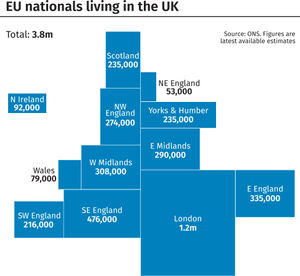
Under the EU Settlement Scheme, EU citizens and family members who have been in the UK for five years by the end of 2020 will be able to apply for settled status, meaning they are free to go on living and working in the UK indefinitely.
Those who have arrived by December 31 2020, but do not have five years’ residence, can seek to stay until they have, at which point they can seek settled status.
Applications will cost £65 for adults and £32.50 for children under the age of 16.
Applicants will be asked to prove their identity, declare any criminal convictions and upload a facial photograph.
The Home Office will check employment and benefits data to confirm proof of residence, while all applications will be run through UK criminality and security databases.
Immigration Minister Caroline Nokes said: “We have made great progress in preparing for the implementation of the EU settlement scheme, which will make it easy for EU citizens to get the status they need.
“From today we are inviting a small group of EU citizens to make an application to secure their status. We will use their feedback to make any necessary adjustments ahead of the scheme being fully opened.”


